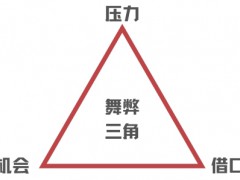据今日油价网站2月15日消息 当国际海事组织宣布计划大幅减少船舶允许排放的硫含量时,该行业的调整相对较快。毕竟,一切都是为了燃料。如今,欧盟已将目光投向将航运纳入排放交易体系(ETS)。与此同时,一种新的船舶可能会来到全球海洋:零排放船舶。
根据欧盟委员会的数据,航运业每年产生的温室气体约占全球温室气体排放量的2.5%,即9.4亿吨二氧化碳。因此,加强排放监管是一个成熟的目标,尤其是因为它属于难以脱碳的行业。到目前为止,柴油或液化天然气替代燃料的船舶只取得了有限的成功,这意味着在可见的未来,航运业将继续依赖化石燃料。
欧盟去年首次公布了让托运人支付排放费用的计划,可以理解的是,该行业反对这些计划。其认为,将ETS扩展到航运业违反了国际法。但不幸的是,欧盟法院对此作出了裁决。
这意味着一旦ETS覆盖整个行业的过程完成,运输成本可能会变得更高。这也意味着,在相互竞争的减排计划中,混乱可能接踵而至。国际海事组织也有一个针对不同行业利益的减排计划,并加剧了政治紧张。
这是世界上最大的航运协会BIMCO本月早些时候在欧盟就如何最有效地将ETS扩展到航运业提出建议的最后期限之前发出的警告。
Seatrade Maritime News援引BIMCO秘书长David Loosley的话报道称:“如果欧盟实施区域排放交易机制,航运业可能会受到多重排放交易体系的冲击,这将使基于全球市场的措施更加难以实现。”
王磊 摘译自 今日油价
原文如下:
Shipping Is The Next Big Industry To Go Net-Zero
When the International Maritime Organisation announced plans to significantly reduce the amount of sulfur ships were allowed to emit, the industry adjusted relatively quickly. After all, it was all about the fuel. Now, the EU has set its sights on adding shipping to its Emissions Trading System. Meanwhile, a new kind of ship may be coming to the oceans of the world: zero-emission ships.
According to the European Commission, the shipping industry generates some 2.5 percent of the world’s greenhouse gas emissions or 940 million tons of carbon dioxide annually. As such, it is a ripe target for more emission regulation, especially as it falls in the category of hard-to-decarbonize industries. Alternatives to vessels fueled by diesel or liquefied natural gas have only had limited success so far, which means that for the observable future, shipping will continue to rely on fossil fuels.
The EU first unveiled plans to make shippers pay for their emissions last year, and the industry understandably took a stand against these plans. It argued that extending the ETS to the shipping sector went against international law. Unfortunately for the industry, the EU Court of Justice ruled against it.
This means that shipping will likely become more expensive once the process of extending the ETS to cover the industry is completed. It also means that chaos could ensue amid rivaling emission-reduction schemes—the IMO also has an emission-reduction scheme for the industry—different industry interests, and heightened political tensions.
This is what BIMCO, the world’s largest shipping association, warned earlier this month, ahead of the EU’s deadline for proposals on how to most effectively extend the ETS to the shipping industry.
“If the EU implements a regional ETS, shipping risks getting hit by multiple emission trading systems which will make a global market-based measure much more difficult to achieve,” said BIMCO’s Secretary General, David Loosley, as quoted by Seatrade Maritime News.







